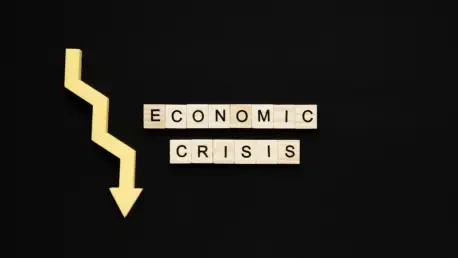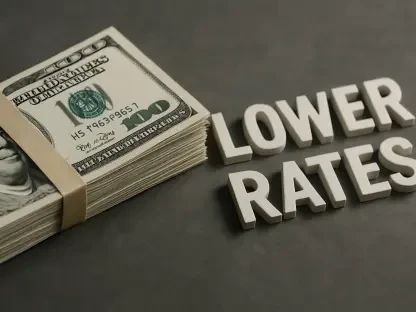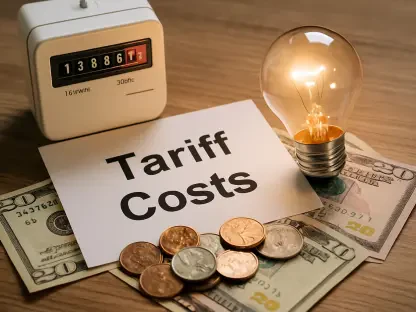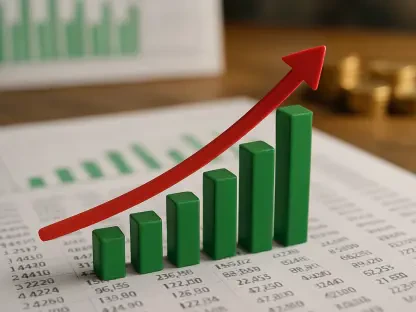In recent times, U.S. President Donald Trump’s aggressive demands on the Federal Reserve, particularly targeting Chairman Jerome Powell, have significantly impacted the U.S. financial markets. Trump’s persistent push for interest rate cuts, based on his assertion of low inflation, has ignited widespread market reactions, resulting in considerable financial turmoil amid an environment already fraught with economic uncertainties. The president’s disparagement of Powell, whom he has labeled a “major loser,” combined with his criticism for not reducing interest rates, has catalyzed a dramatic downturn in investor confidence and the broader market stability.
Market Reactions to Trump’s Criticism
The financial markets have not taken kindly to President Trump’s open criticism of Federal Reserve Chairman Jerome Powell. Amidst the president’s scathing remarks, U.S. stocks experienced substantial sell-offs, and the value of the U.S. dollar plummeted. This decline was primarily driven by Trump’s belief that the economic conditions warranted immediate interest rate cuts to stave off a possible downturn. Trump’s rhetoric intensified fears that leaving the rates unchanged would precipitate a slowdown, thereby creating an environment of uncertainty and risk aversion among investors.
The backlash from Trump’s comments extended beyond just domestic markets; it fostered skepticism about the stability of U.S. economic policies. The substantial decline in stock prices and the depreciation of the dollar were symptomatic of a broader lack of confidence in the government’s economic strategies. Financial analysts noted that the rhetoric from the administration has injected unprecedented volatility into the markets, making it difficult to predict short-term and long-term financial outcomes. Consequently, the reaction of the markets illustrates how political narratives can profoundly influence economic stability and investor behavior.
Investor Behavior and Safe Havens
Investor sentiment has dramatically shifted away from traditional safe-haven investments in response to the recent market turmoil. Traditionally, long-term bonds and the U.S. dollar are deemed reliable during periods of market volatility. However, the current scenario demonstrated an unusual trend wherein these typically stable assets faced substantial sell-offs. This phenomenon, referred to as the “sell America” trend, underscores a significant dislocation within the financial markets, indicating deep-rooted concerns about the future trajectory of the U.S. economy.
The depreciation of the U.S. dollar to its lowest level since 2022 was particularly noteworthy, as it defied expectations of increased demand for safer assets amidst financial instability. This deviation from the norm highlighted investors’ apprehensions surrounding the political environment and monetary policy. It also reflected a broader sentiment that conventional safe havens might no longer offer the security they once did, forcing investors to re-evaluate their strategies and seek alternatives that could better shield them from potential financial upheaval in an increasingly unpredictable market.
Fears of Stagflation and Economic Slowdown
The specter of stagflation—a precarious combination of stagnation and inflation—has significantly influenced investor behavior. Concerns about a potential economic slowdown, compounded by stalled growth and capricious trade dynamics, have led investors to abandon perceived safe investments in favor of commodities and high-risk assets. Gold, often viewed as a hedge against economic instability, has seen its prices surge to unprecedented levels, reaching $3,500 per ounce. Similarly, Bitcoin has experienced a remarkable increase, with its value nearing $91,000, reflecting widespread concern about the economic outlook.
This pivot away from traditional financial instruments towards commodities and speculative assets indicates a broader apprehension about sustained economic growth and inflation management. The current environment suggests that traditional economic indicators may not fully capture the underlying market sentiment. Investors are hedging against multiple risks, including political instability, inconsistent monetary policy, and fluctuating trade relations, which collectively heighten the fears of stagflation. This adaptive strategy underscores the dire need for clearer policy direction to reassure market participants and stabilize economic conditions.
Foreign Investor Sentiment
Foreign investors are becoming increasingly wary of the current economic climate in the U.S., particularly given the notable portion of U.S. equities and government debt held by international entities. The ongoing uncertainty has led to significant outflows from U.S. equity ETFs, with subsequent inflows being redirected to international markets. This capital migration suggests a shift in confidence and reliance, posing potential long-term challenges for the U.S. economy, which has largely depended on foreign investment to sustain its financial markets.
Recent trends indicate that the previously perceived stability and predictability of the U.S. markets are now under scrutiny. Analysts highlight that foreign investors, who once viewed the U.S. as a safe haven for capital, are increasingly questioning the prudence of their continued investments amidst the current political and economic turbulence. This shifting sentiment underscores the broader concern that any continued political interference or lack of clarity in economic policies might further erode the attractiveness of U.S. financial instruments, reshaping global investment strategies.
Industry Expert Opinions
In recent times, U.S. President Donald Trump’s forceful demands on the Federal Reserve, especially targeting Chairman Jerome Powell, have significantly influenced the U.S. financial markets. Trump’s relentless push for cutting interest rates, grounded in his claim of low inflation, has sparked widespread market reactions. This has led to notable financial instability in an environment already filled with economic challenges. The president has harshly criticized Powell, calling him a “major loser,” and rebuked him for not lowering interest rates. This disparagement has triggered a profound decline in investor confidence and has compromised overall market stability. Trump’s aggressive rhetoric and insistence on rate cuts have only deepened existing economic uncertainties, causing both domestic and international concerns. The turbulence in the financial markets can be traced back to this ongoing tension between Trump’s administration and the Federal Reserve, unsettling many investors and leading to broader economic implications.









